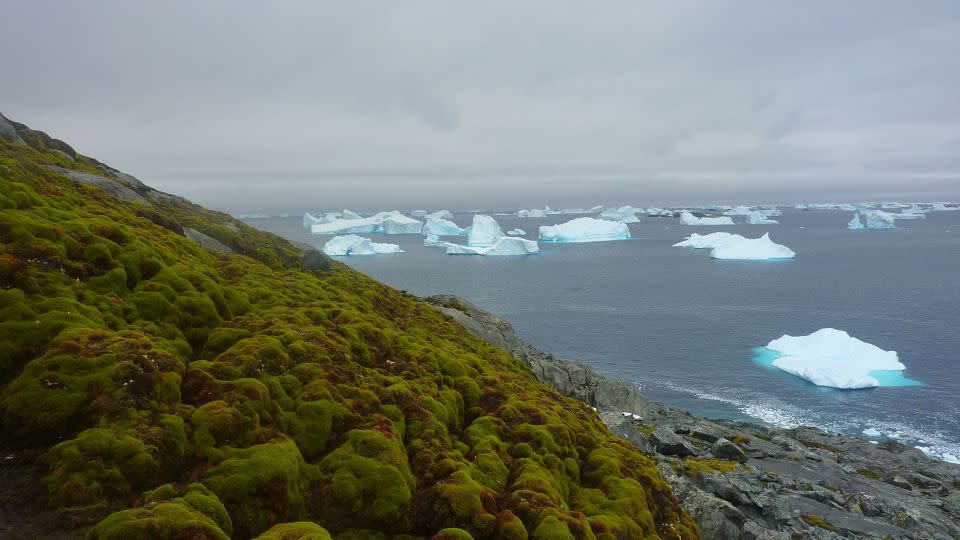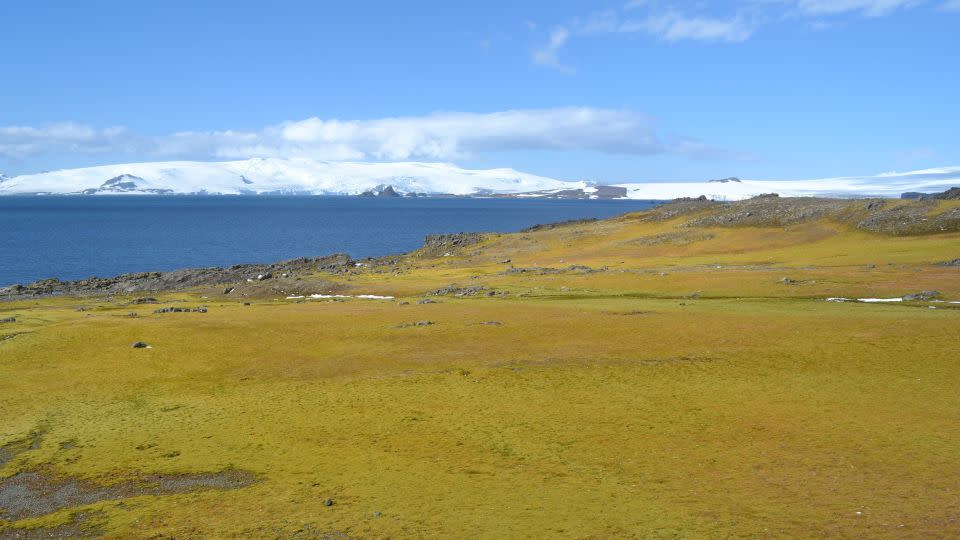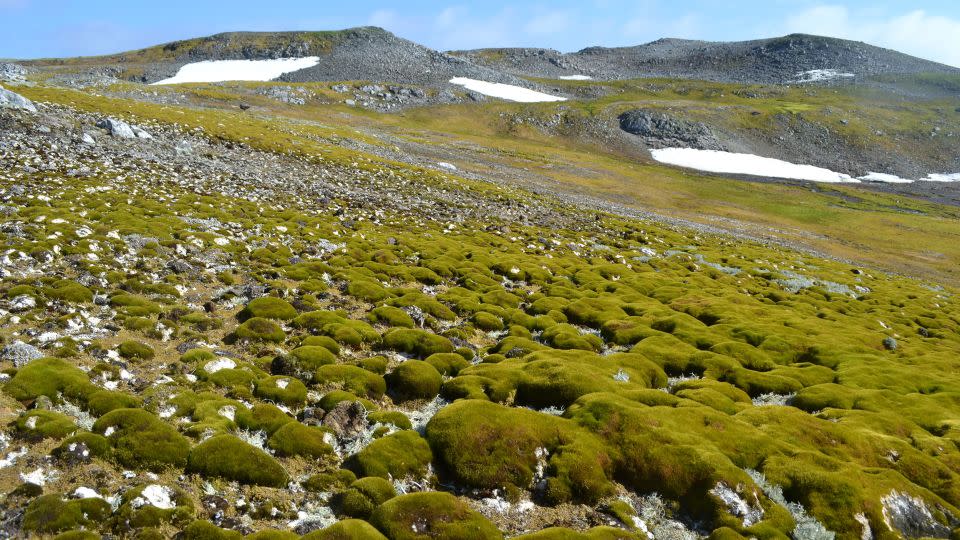Parts of icy Antarctica are turning green with plant life at an alarming rate as the region is gripped by extreme heat events, according to new research, sparking concerns about the changing landscape on this vast continent.
Scientists used satellite imagery and data to analyze vegetation levels on the Antarctic Peninsula, a long mountain chain that points north to the tip of South America, and which has been warming much faster than the global average.
They found plant life — mostly mosses — had increased in this harsh environment more than 10-fold over the past four decades, according to the study by scientists at the universities of Exeter and Hertfordshire in England, and the British Antarctic Survey, published Friday in the journal Nature Geoscience.
Vegetation covered less than 0.4 square miles of the Antarctic Peninsula in 1986 but had reached almost 5 square miles by 2021, the study found. The rate at which the region has been greening over nearly four decades has also been speeding up, accelerating by more than 30% between 2016 and 2021.




While the landscape is still almost entirely snow, ice and rock, this small, green area has grown dramatically since the mid 1980s, said Thomas Roland, a study author and environmental scientist at the University of Exeter.
“Our findings confirm that the influence of anthropogenic climate change has no limit in its reach,” Roland told CNN. “Even on the Antarctic Peninsula – this most extreme, remote and isolated ‘wilderness’ region – the landscape is changing, and these effects are visible from space.”
Antarctica, the coldest place on Earth, has recently been gripped by extreme heat events.
This summer, parts of the continent experienced a record-breaking heat wave with temperatures climbing up to 50 degrees Fahrenheit above normal from mid-July.
In March 2022, temperatures in some parts of the continent reached up to 70 degrees above normal, the most extreme temperature departures ever recorded in this part of the planet.
As fossil fuel pollution continues to heat up the world, Antarctica will keep on warming and this greening is only likely to accelerate, the scientists predict.
The more the peninsula greens, the more soil will form and the more likely the region will become more favorable for invasive species, potentially threatening native wildlife.
“Seeds, spores and plant fragments can readily find their way to the Antarctic Peninsula on the boots or equipment of tourists and researchers, or via more ‘traditional’ routes associated with migrating birds and the wind – and so the risk here is clear,” he said.




The greening could also reduce the peninsula’s ability to reflect solar radiation back into space, because darker surfaces absorb more heat.
These impacts would likely only be local, but could help further accelerate the growth of plant life as the climate continues to warm, said one of the authors, Olly Bartlett, a senior lecturer in remote sensing and geography at the University of Hertfordshire.
“This iconic landscape could be changed forever,” he said.
Matthew Davey, associate professor of physiological ecology at the Scottish Association for Marine Science, and an expert on polar plant and microbe ecology, told CNN the study was “an important progression” for understanding plant life on Antarctica.
There could even be more vegetation than identified, said Davey, who was not involved in the research. The methods used by the scientists would mainly detect larger, greener moss fields, he said. “But we know that there are also large areas of lichens, grass and green and red snow algae that will also contribute to the vegetation area in Antarctica.”
While the actual area increase of plant life is small, he added, the percentage rise is dramatic and it shows “the trend that vegetation is spreading, albeit slowly, in Antarctica.”
The next stage for the scientists will be to study how plants colonize recently exposed bare land as Antarctica’s glaciers retreat further.
CNN meteorologist Mary Gilbert contributed to this report.
For more CNN news and newsletters create an account at CNN.com
